Spot the Scam: Phishing Texts, Bitcoin Scams, MyLife Deceptive Practices, and iPhone Pop-Up Malware
We may be tired of scams, but they are not going anywhere – thriving for the next 11 months of 2021. This post will share some of the ongoing scams we caught this week on the Internet in detail. Can you spot the scams and avoid them?
HMRC phishing texts
How does it work?
Did you receive fake text messages from HM Revenue & Customs that ask you to claim a tax refund by clicking a link? Be cautious. This is a common type of phishing scam.
Scammers spoof text messages and fake web addresses to make them look legitimate from the United Kingdom government. However, it is important to know that a legitimate web domain from the government should be gov[.]uk instead of gov.uk-personal[.]org or gov.uk-secure[.]org.
The link included in the text is a phishing link. It will take you to a fake website and ask you to enter personal information such as credit card or bank account details.
Scammers can make use of these credentials on other scams and crimes. In worse situations, malware will start to download once you click on the link. Scammers can thus spam all your contacts with similar text to trick more people.
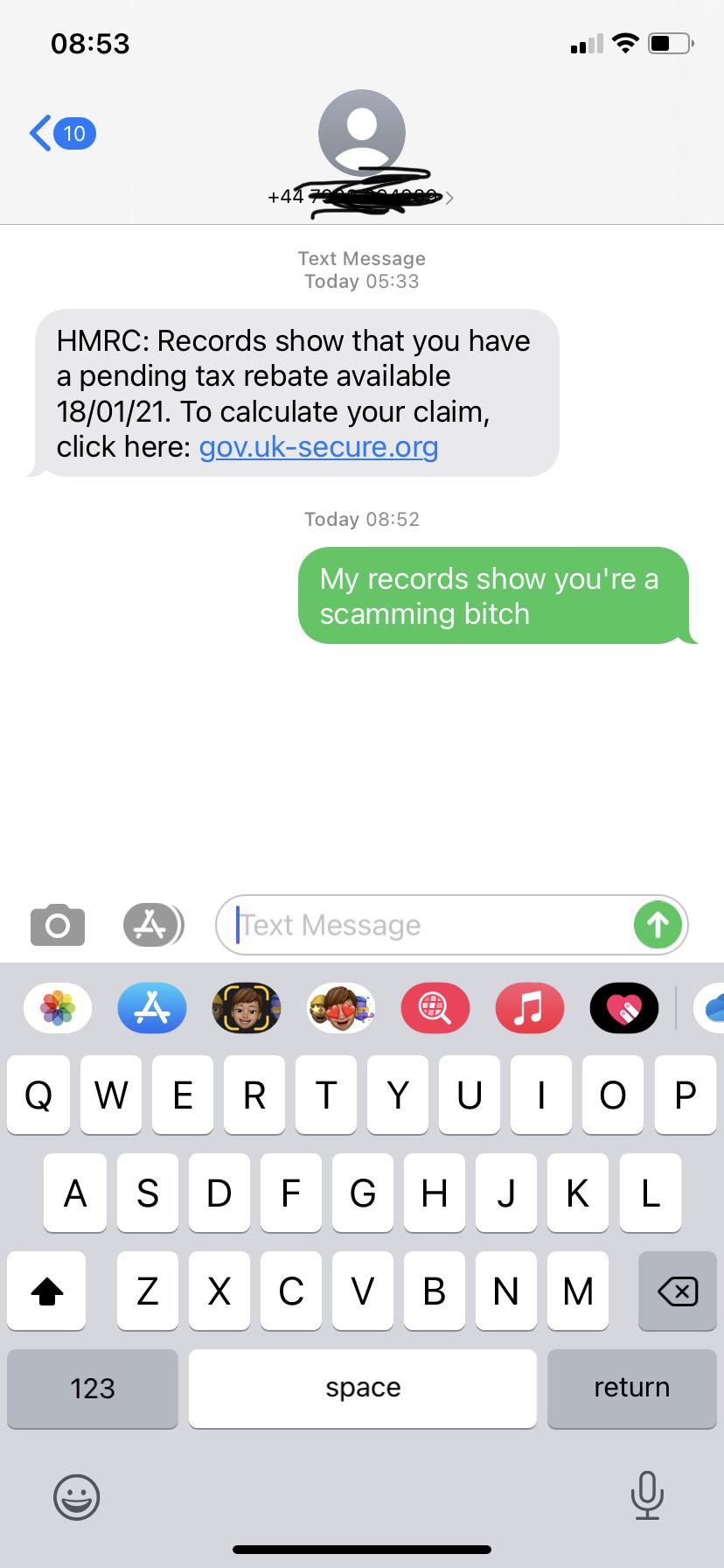
The content of HMRC phishing texts:
HMRC: Records show that you have a pending tax rebate available 17/01/21. To calculate your claim, click here: gov.uk-personal[.]org
How to avoid HMRC phishing scams?
- Double-check the sender’s mobile number. Numbers from abroad should be a major red flag.
- Reach out to HMRC to verify the legitimacy of the text messages.
- NEVER click links or attachments from unknown sources. Check the link’s safety status first using Trend Micro ScamCheck!
After you’ve pinned the ScamCheck extension, it will block dangerous sites automatically! (Available on Safari, Google Chrome, and Microsoft Edge).
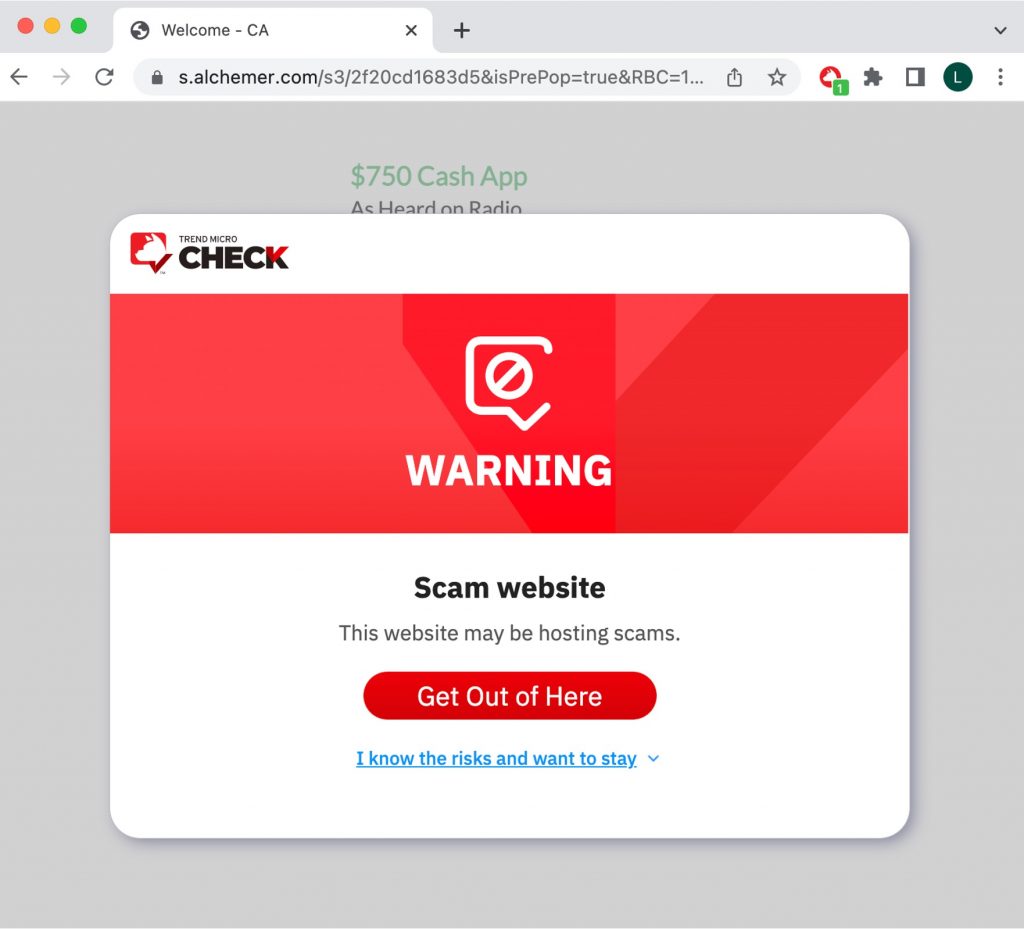
You can also download the ScamCheck mobile app for 24/7 automatic scam and spam detection and filtering. (Available for Android and iOS).
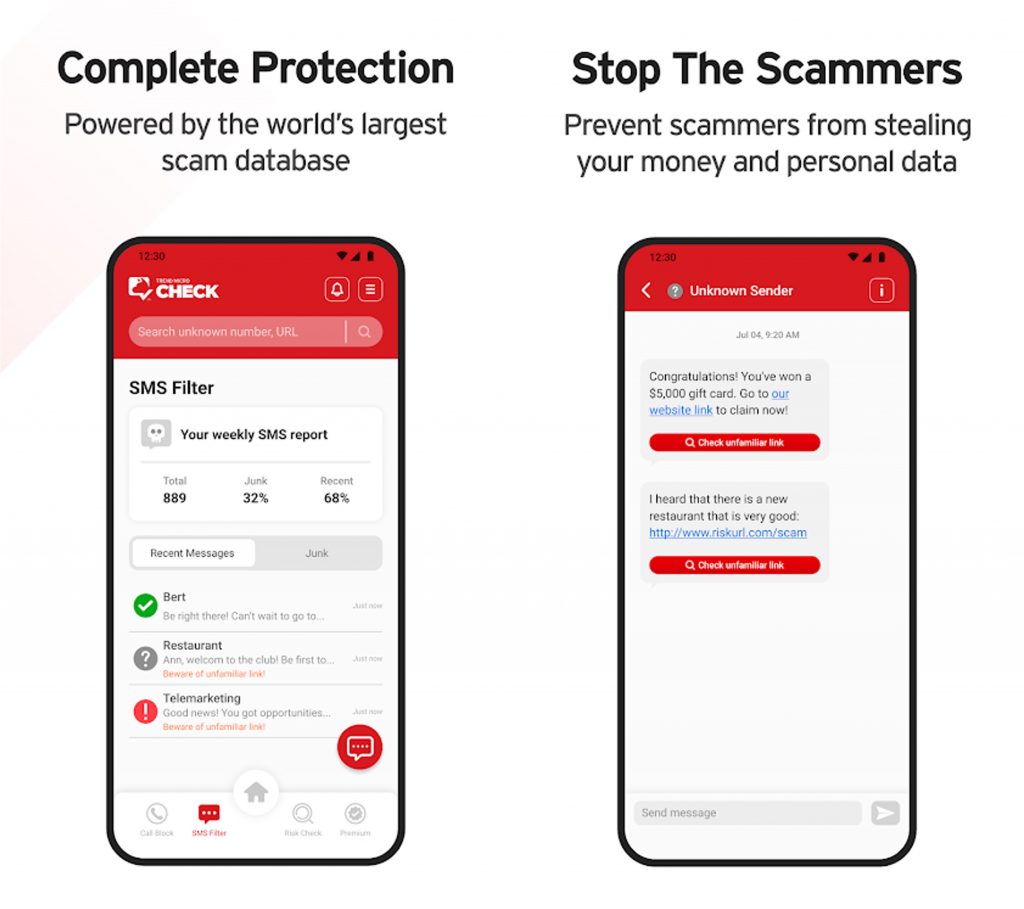
Check out this page for more information on ScamCheck.
Bitcoin Scams on Discord
How does it work?
Many people are receiving messages about “bitcoin charity draw”on Discord. Scammers pretend to be from legitimate companies such as Subway, reaching out to users on Discord and trying to persuade them to claim rewards by clicking on a link.

The link will take you to a fake bitcoin trading website that shows you an incredible amount of money you can get.


You will be asked to pay an advance fee when you try to claim the reward. If you pay the advance fee, the scammer will disappear, and you will receive zero bitcoin.
The content of Cryptocurrency Scams on Discord:
Сongratulatiоns!
lf you аrе reading this message, you аre оne оf the winners in оur mаjor GIVЕAWАY
Yоu аrе оnе оf thе WINNЕRS
In a charity draw оf ВTС, whiсh wаs arrangеd by our Trading Platform togеthеr with оur dear investors. In ordеr to mаke реорle hаppу in the nеw yеаr 2021, wе dесidеd to аttract nеw рartiсipants аnd thаnk thosе whо have alrеаdy registerеd. Thе amount of the draw is 7.77 BTC. Log in tо уour acсount or, if уou аrе nоt аlreadу a member, сrеаte aссount and rеcеivе уоur prizе.
– https://bsvbase[.] com/
– you prizе is 15.000$ in ВTС аt thе current exсhаnge rаte.
**- Impоrtаnt thе рrоmo cоde is vаlid fоr 7 dаys, yоu can cоntinuе to invеst оr withdrаw the prize.**
**- Do nоt give thе promо cоde tо anоther persоn**
**- Your рrоmo сode: nUpFmRJ8It5l Yоu саn activate the рrоmо сodе on thе «Sеttings» -> «Rеferrаl рrоgram»**
**- In cаse оf рroblem situatiоns, wе alwaуs have оnlinе suрport оn оur Trаding Рlаtfоrm**
Thе BsvBasе tеаm wishеs уоu a Luсky Nеw уеаr 2021!
IF YOU DON’T КNОW АNYTНING ABOUT CRYPTОСURRЕNCIЕS, PLEASE IGNORE TНIS МЕSSАGE
How to avoid cryptocurrency scams on Discord?
- Ask questions and do your homework to learn as much about the investment as possible. Never invest in cryptocurrency, or any kind of investment unless you fully understand it.
- Check the safety of web addresses using Trend Micro ScamCheck:
Read more about investment scams.
“Your iPhone has been compromised” pop-up scam
How does it work?
If you see a pop-up window that reads “Your iPhone has been compromised!” on your iPhone, don’t click on the OK button! It is a phishing link that takes you to a fake website and lures you into entering your Apple account details. In worse case, malware will start to download as early as you click on the button.
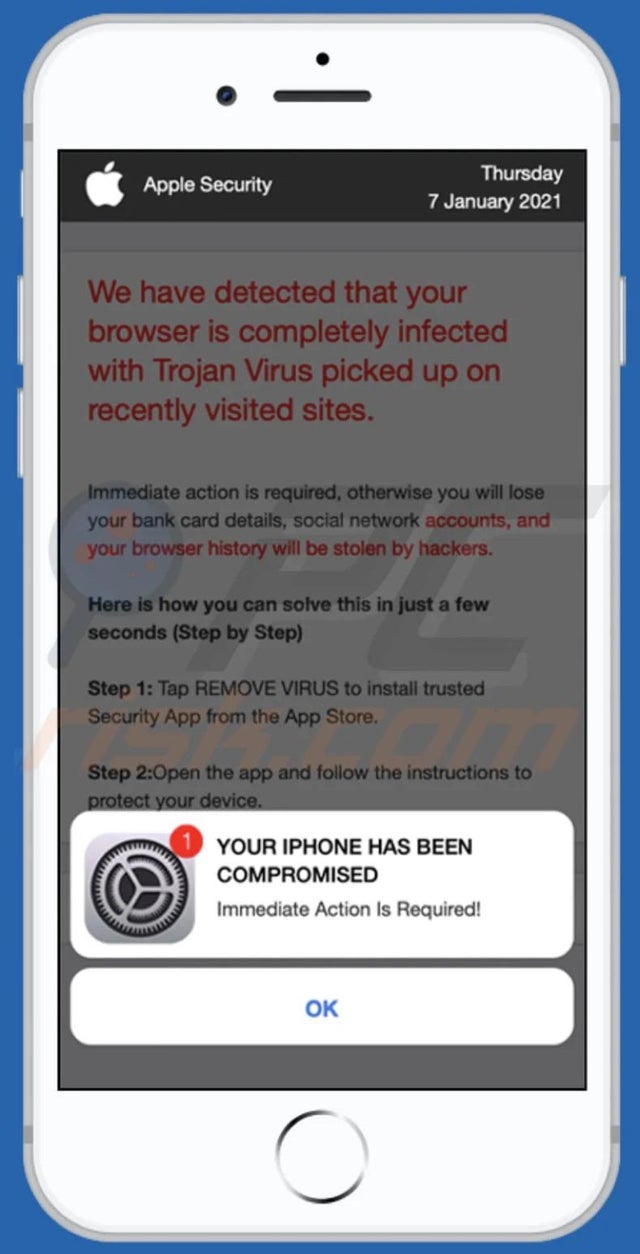
The content of iPhone pop-up scams:
YOUR IPHONE HAS BEEN COMPROMISED Immediate Action Is Required! OK
We have detected that your browser is completely infected with Trojan Virus picked up on recently visited sites. Immediate action is required, otherwise you will lose your bank card details, social network accounts, and your browser history will be stolen by hackers. Here is how you can solve this in just a few seconds (Step by Step) Step 1: Tap REMOVE VIRUS to install trusted Security App from the App Store. Step 2: Open the app and follow the instructions to protect your device.
How to avoid iPhone pop-up scams?
- Shut down the tab or the browser immediately. If you don’t know how to, try to press the Home button and swipe up.
- Go to settings and clear cache and browser data to avoid future attacks of similar messages. Choose Setting > Safari > Clear History and Website Data > Clear History and Data.
- Run a system anti-malware diagnosis on your device if possible. Try Trend Micro Mobile Security to protect your phone.
- Don’t click any button. You can use Trend Micro ScamCheck for immediate scam detection.
Controversial Reputation Website: MyLife.com
How does it work?
There have been controversies about MyLife.com website for a long time. As early as 2011, the website was accused of scammy activities – they seemed to provide fake name list while charging a huge amount of money.
In July 2020, MyLife violated the Fair Credit Reporting Act and used misleading billing and marketing practices to lure consumers into signing up for auto-renewing premium subscriptions, according to the Federal Trade Commission (FTC). MyLife fake information such as criminal records in the report provided to consumers, prompting them to purchase their service.
In addition to that, MyLife sends emails with subjects such as “We Found a Negative Item on your Reputation Profile” to people:
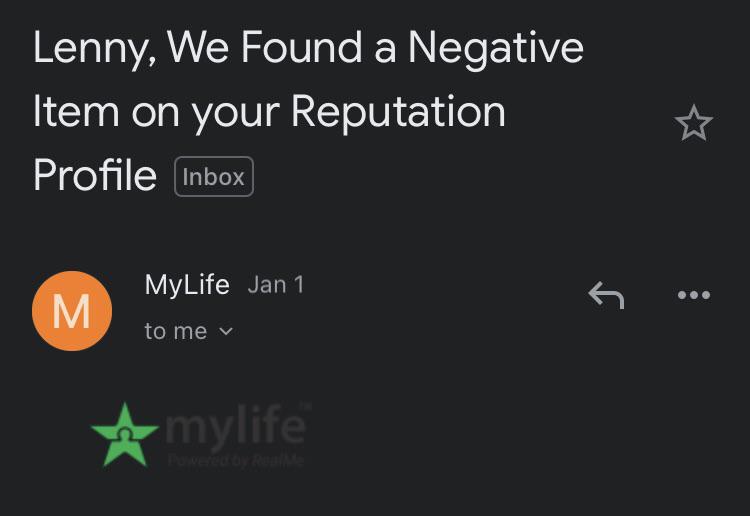
How to avoid MyLife scams?
- Do your homework about data brokers, credit reporting, or people searching engine sites before purchasing any services. Be smart with your personal data online!
Did you successfully spot the scams? Remember, always CHECK before your next move.
If you think Trend Micro ScamCheck is helpful, please SHARE to protect your family and friends.
Click on the button below to try Trend Micro ScamCheck for free now:
